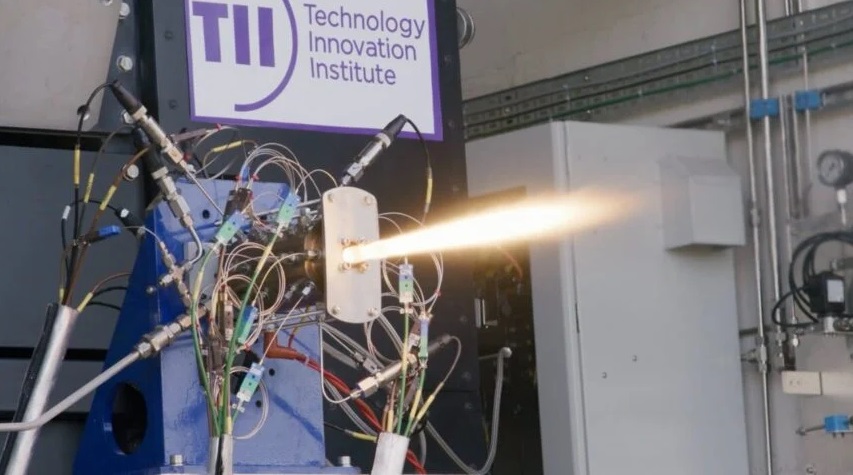Key Takeaways
- The UAE has successfully tested its first domestically developed liquid-fueled rocket engine, marking a significant advancement in its space capabilities.
- Engine performance met international standards, paving the way for future propulsion development and domestic space missions.
- Further testing is planned to enhance the design and functionality of the engine over the next year.
Significant Milestone in UAE Space Program
The United Arab Emirates (UAE) has achieved a crucial milestone by successfully testing its first domestically developed liquid-fueled rocket engine. This 250-newton engine, produced by the Mohammed Bin Rashid Space Centre (MBRSC), showcased stable combustion and consistent performance through multiple test cycles. Engineers hailed the test as a proof of concept for future propulsion projects, underlining the UAE’s capacity to design and manufacture sophisticated rocket technology using local expertise.
Liquid-fueled engines, while more complex than solid-fuel systems utilized in past UAE missions, offer precise control over combustion and fuel flow. This successful test lays the groundwork for more significant propulsion units aimed at orbital launches and deep-space exploration. MBRSC’s long-term goal is to nurture in-house expertise across all phases of rocket development, including injector design and telemetry.
The testing took place at the newly expanded propulsion test complex in Dubai, featuring automated control systems and advanced instrumentation, which enabled engineers to conduct repeated ignition and endurance tests in controlled conditions. The performance of the liquid engine has been confirmed to align with international standards for small spacecraft thrusters, which are critical for orbital maneuvers and maintaining spacecraft orientation.
Officials stated that this accomplishment enhances the UAE’s status in regional space technology development. It builds on prior missions, such as the Emirates Mars Mission and the Rashid lunar rover, both of which relied on foreign launch providers. The current focus is to bolster domestic launch capabilities through local propulsion research.
This project aligns with the UAE’s National Space Strategy aimed at expanding the country’s industrial base and reducing dependence on imported technologies. The MBRSC plans to conduct additional testing over the next year to refine the engine’s chamber design and to explore longer-duration firing capabilities. This initiative reflects the UAE’s commitment to advancing its space program and enhancing its technological independence.
The content above is a summary. For more details, see the source article.















